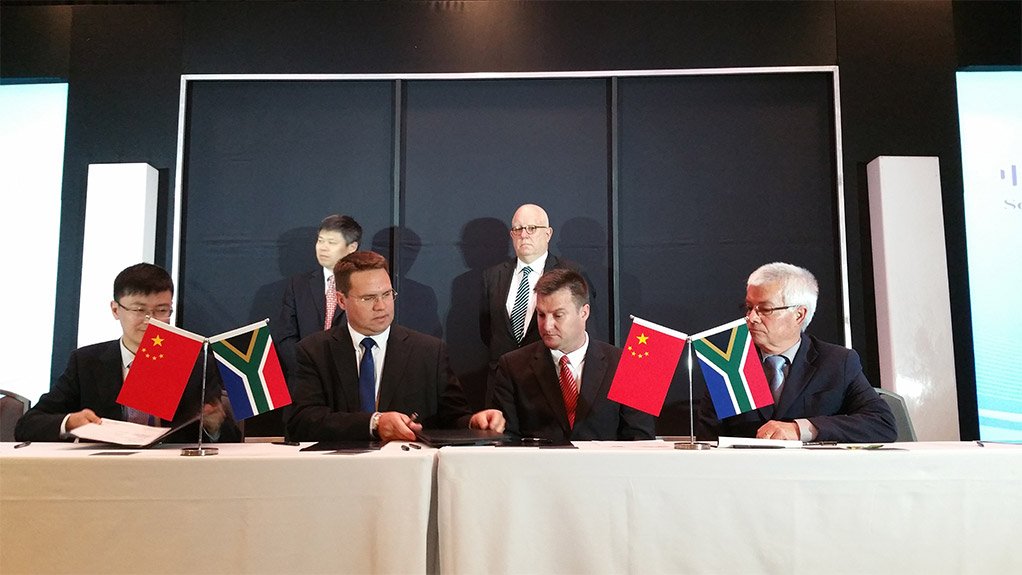Infrastructure development and economic cooperation will probably dominate discussions during the first ever Forum on China-Africa Co-operation on African soil. But education also features on the agenda. This is an important opportunity to reflect on the role and purpose of China’s global Confucius Institutes and Classrooms.
These are set up by China’s government to promote the country’s language, culture and intercultural exchange. There are currently 495 such institutes and 1000 smaller classrooms – affiliated to primary and secondary schools – in more than 130 countries. The latest available figures for Africa, from late 2014, show there are 60 institutes and classrooms across the continent. The ratio between the two is not clear.
The institutes give foreigners the chance to learn more about China. Indirectly, at least, they are a way for China to counter the generally negative images about the country by foreign media.
Some critics have described Confucius Institutes as merely crude outlets for propaganda. Is this true, or fair? My research suggests not. But there are some serious questions African universities must ask when they enter into Confucius Institute partnerships.
How Confucius Institutes work
Confucius Institutes are normally organised as joint ventures between Chinese and foreign universities. The institute in Grahamstown, South Africa, is a co-operation between the local Rhodes University and Guangzhou’s Jinan University. In Kenya, the University of Nairobi’s Confucius Institute is partnered with China’s Tianjin Normal University.
The third player in every Confucius Institute is Hanban. This is the China National Office for Teaching Chinese as a Foreign Language, which falls under the Chinese Ministry of Education.
The host university usually provides the premises for the institute. It also sources local staff and pays part of the running costs. China, in turn, normally contributes start-up funding of between US$100,000 and $200,000 for the first couple of years. It dispatches a director and teachers, donates teaching materials and covers the rest of the running costs.
It is this co-operative structure – and the resulting close relationship between foreign universities and the authoritarian Chinese state – which spurs critics to describe the institutes as either academic malware or propaganda instruments of the Chinese Communist Party.
It is true that Confucius Institutes normally err on the safe side and don’t discuss “sensitive” issues like the banned practice of Falun Gong, the role of the Dalai Lama or what happened at Tiananmen Square in 1989. But I believe that critics go too far in describing them as Cold War style propaganda outlets that spread lies and brainwash their visitors.
Such debates, which are sometimes quite emotional and ideologically charged, are important. But they miss other, more pressing concerns about Confucius Institutes. Globally, the institutes are battling with teacher shortages, insufficient teaching materials and questions around their sustainability.
When it comes to institutes in Africa, it is crucial to interrogate how they create both new opportunities and new dependencies for stakeholders on the continent.
Opportunity knocks
For many, if not most universities in Africa, Confucius Institutes are the first and often only contact point for people who want to learn the Chinese language or more about China in general. Numerous European and North American universities have a long history of offering Sinology or China Studies, but this is not the case in Africa.
There were a few small-scale initiatives in a few African countries, but until 2012 there was just one Mandarian program with resident teachers on the African continent and only one research centre dedicated to studying contemporary China. Both of these are at Stellenbosch University in South Africa.
This historical absence of engagement with China on an academic level in Africa suggests that Confucius Institutes could play a more prominent role on the continent. They could be more influential there than in other parts of the world where there are different sites of interaction. Both China and Africa know this. The fifth FOCAC-Beijing Action Plan (2013-2015) says that the:
… two sides will continue to promote the establishment and development of the Confucius Institute and Confucius Classrooms in Africa. China will extend active support in terms of teaching staff, personnel training and teaching materials and equipment.
This direct reference is one of the very few cases where Confucius Institutes are officially mentioned in a foreign policy context. It is proof that the institutes are part of China’s broader foreign relations policy.
Dependency may be a problem
But the very reason that Confucius Institutes are perhaps more important on the continent than anywhere else makes them potentially problematic.
Because there is no established infrastructure to engage with China academically and to learn its language, African universities are potentially more vulnerable if Hanban decides to close down Confucius Institutes in the future. It doesn’t matter why this might happen, whether it’s because of “inappropriate” content or financial constraints. If the Confucius Institute goes at many African universities, the China link goes.
This would be tragic. China is not just Africa’s largest trading partner and a major investor – it also plays an increasingly important role for ordinary people in Africa who should have the opportunity to engage with the Middle Kingdom.
Overall, I believe that Confucius Institutes can be very valuable. It is important, though, that local stakeholders – in Africa and elsewhere – know what they are letting themselves in for. They are not only coupling with the Chinese state, but must consider the sometimes overlooked practical issues and potential dependencies.
Written by Falk Hartig, Postdoctoral Fellow, Goethe University Frankfurt am Main
This article was originally published on The Conversation. Read the original article.
EMAIL THIS ARTICLE SAVE THIS ARTICLE
To subscribe email subscriptions@creamermedia.co.za or click here
To advertise email advertising@creamermedia.co.za or click here











